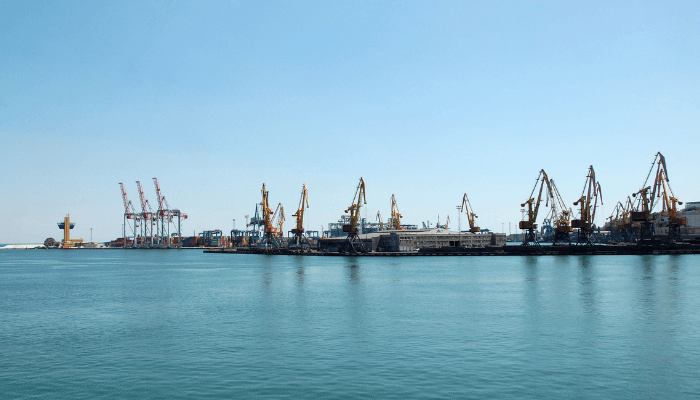

Removing the dangerous sea mines floating near the major ports of Ukraine ports could take up to months. Currently, hundreds of seafarers continue to remain stranded in the region after Russia invaded the country, per the UN agency in charge of shipping safety.
Russia’s vessels have reportedly blocked Ukraine’s Black Sea access, halting the country’s seaborne exports of staples and worsening a worldwide food crisis. The global import bill for foodstuffs is set to touch a fresh record in 2022, per the UN Food and Agriculture Organization.
Moscow has denied responsibility for such a disruption, blaming Ukraine for its refusal to remove mines and protect its harbors from Russian attacks. Efforts to restart operations at the ports are also stumbling. There is hardly any progress from Turkey to brokering a deal.


Insurance and freight costs have gone up after various merchant ships had been hit in the early days of Russia’s invasion. Some shipping firms continue to avoid the Black Sea. In March, three mines were found free-floating, two off the Turkey coast and one close to Romania. Toward the northwest of the Black Sea, commercial vessels have stopped operating, per Peter Adams, the special marine security adviser associated with the International Maritime Organization.
About 450 foreign seafarers remain stranded on more than 80 ships in Ukraine’s ports, down from nearly 2,000. One-third is from the Philippines, with significant numbers from Syria, Turkey, and Azerbaijan.
Most of the Black Sea is back to almost the usual shipping levels, apart from the Sea of Azov and the northwest, where Russian vessels are primarily operating. Ukraine lost its access to the Sea of Azov since Russia occupied the close-by territories.
Meanwhile, the number of vessels flying the flag of Libya and calling at the Russian ports has gone up since 1 April compared to what was observed in the same period last year. On the other hand, Russian-flagged ones doing so have doubled, per Braemar ACM Shipbroking Pte. Those boats can benefit from high freight rates as others will not be going to Russia.
References – Bloomberg, Insurance Journal, Transport Topics










We believe that knowledge is power, and we’re committed to empowering our readers with the information and resources they need to succeed in the merchant navy industry.
Whether you’re looking for advice on career planning, news and analysis, or just want to connect with other aspiring merchant navy applicants, The Marine Learners is the place to be.